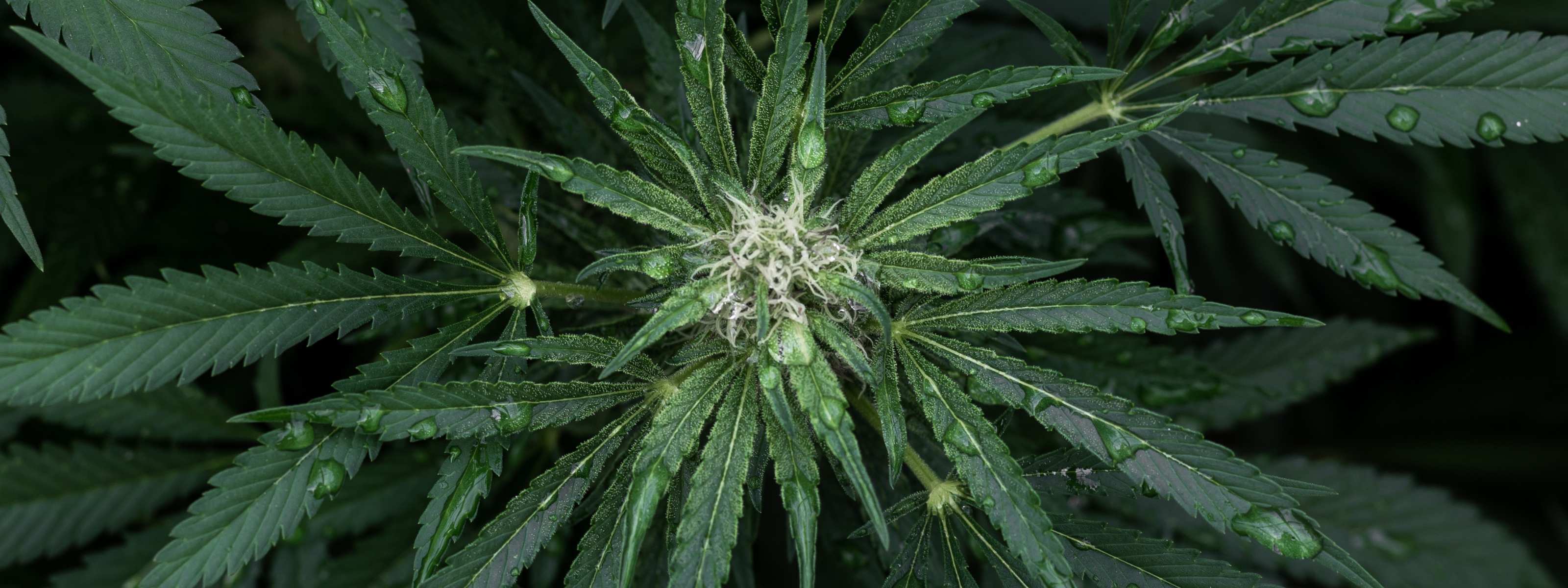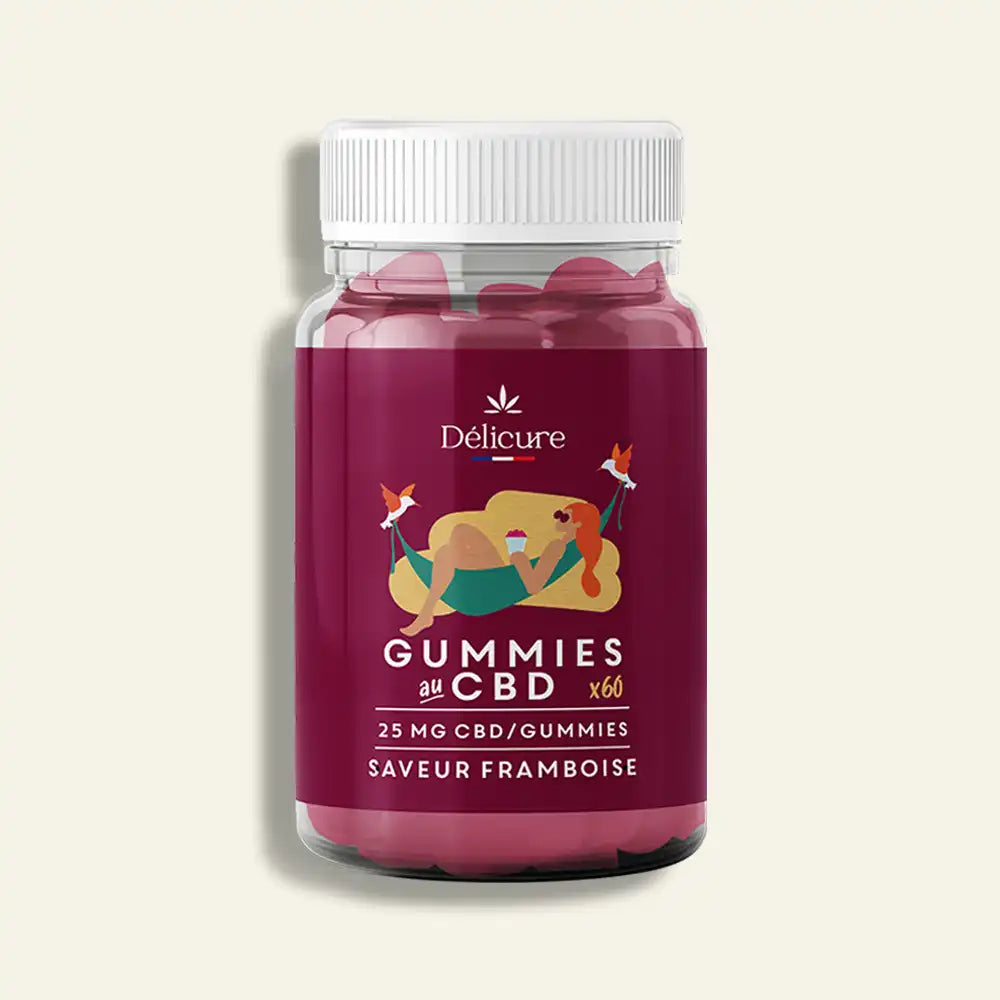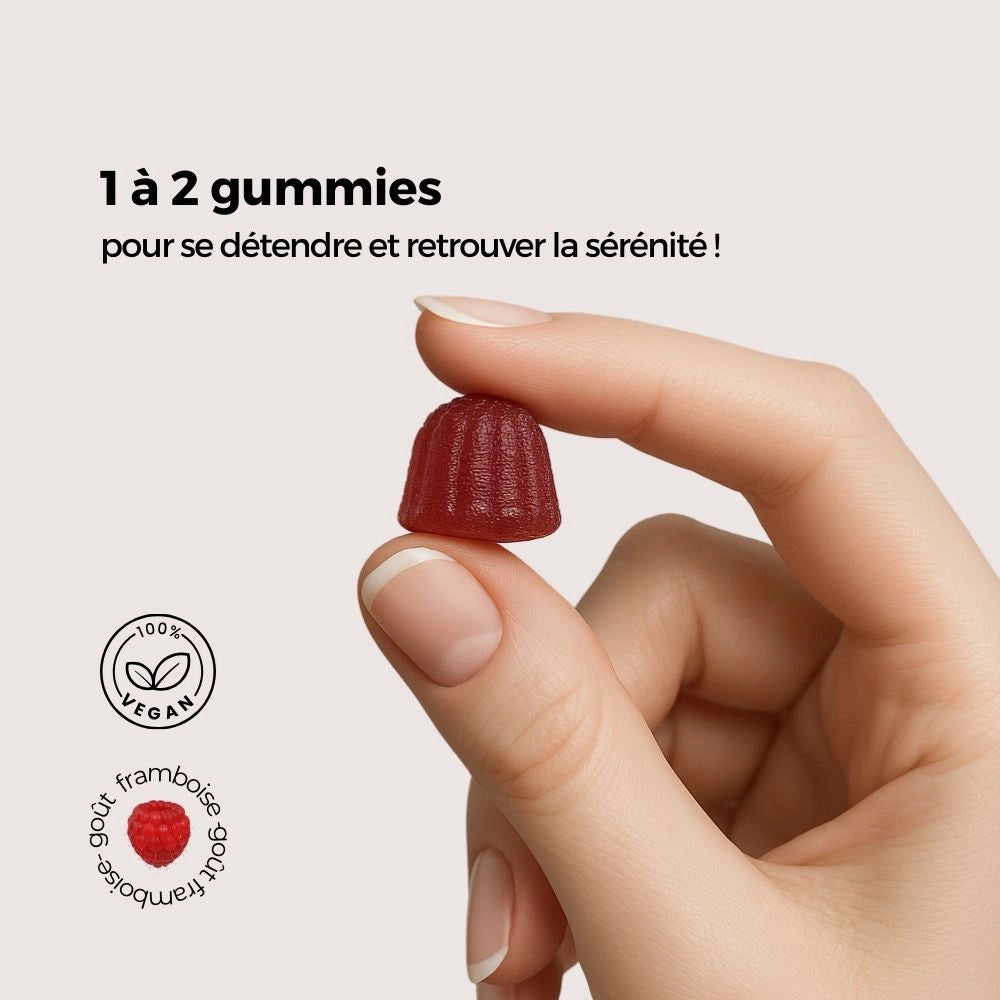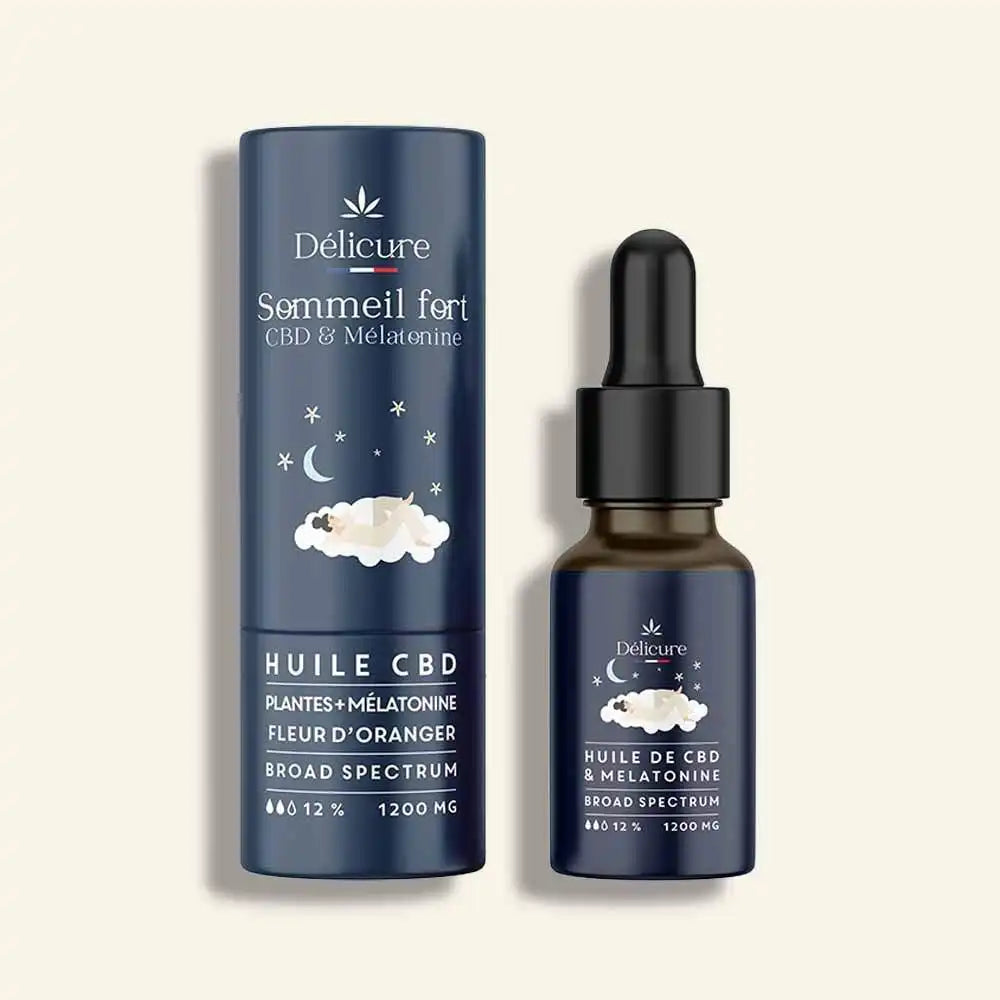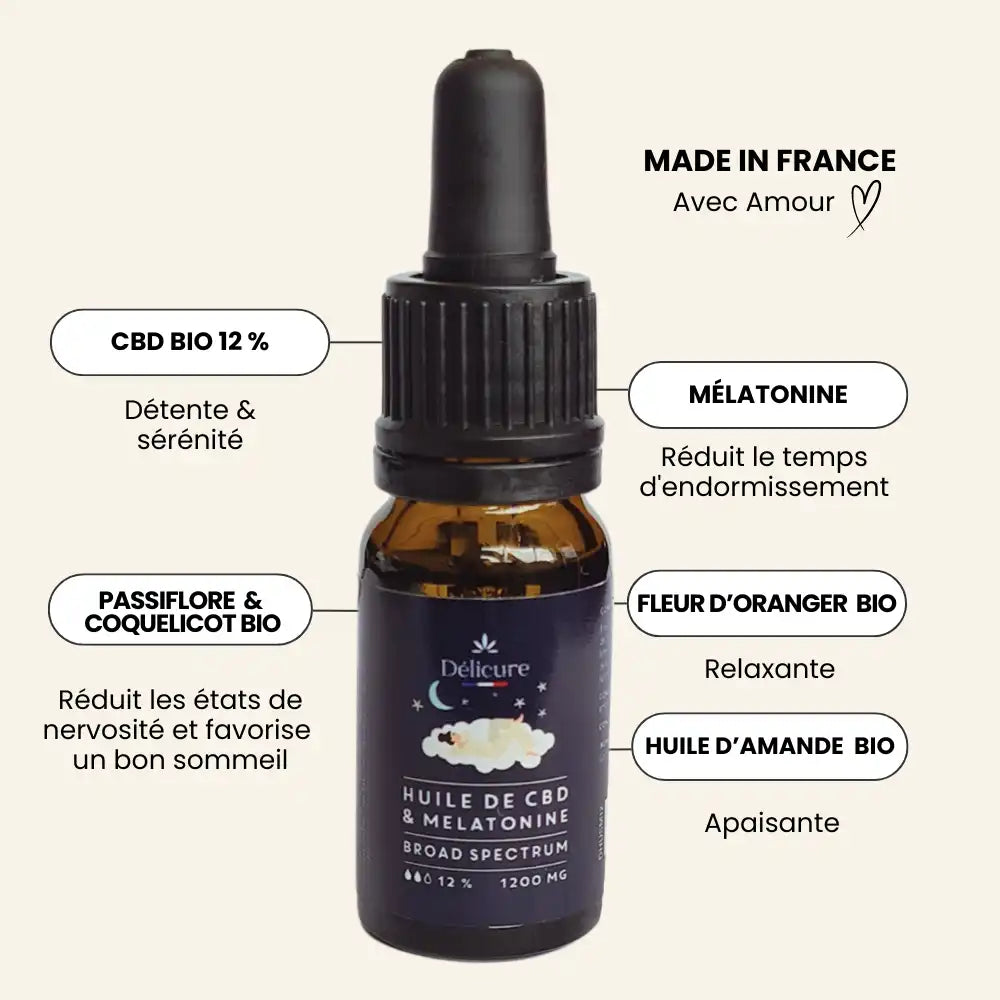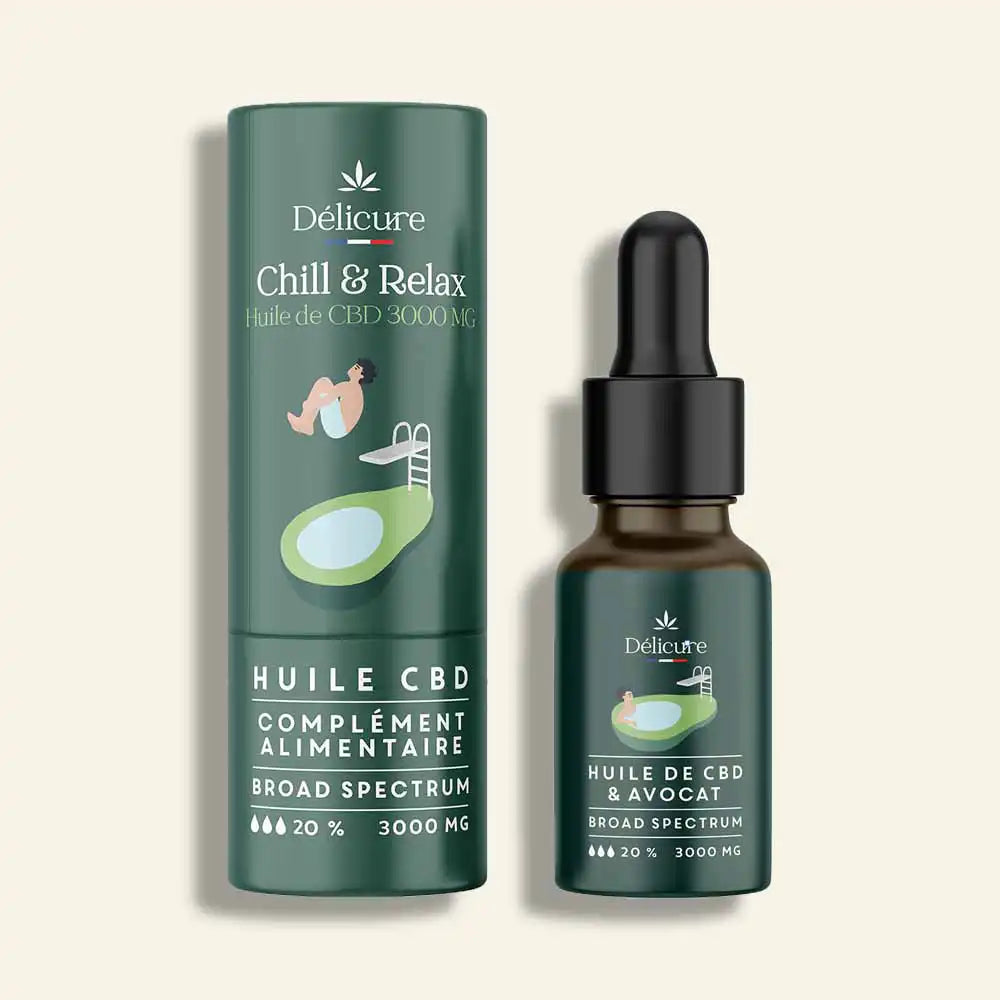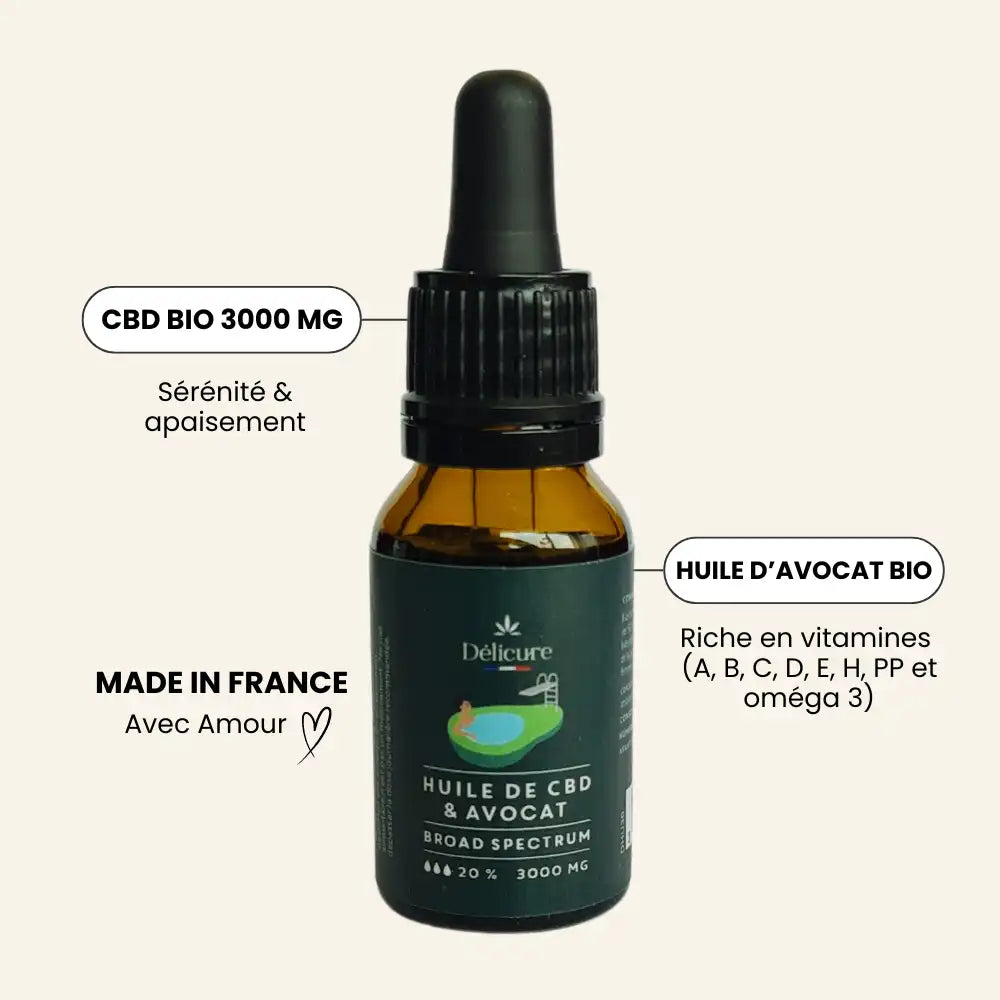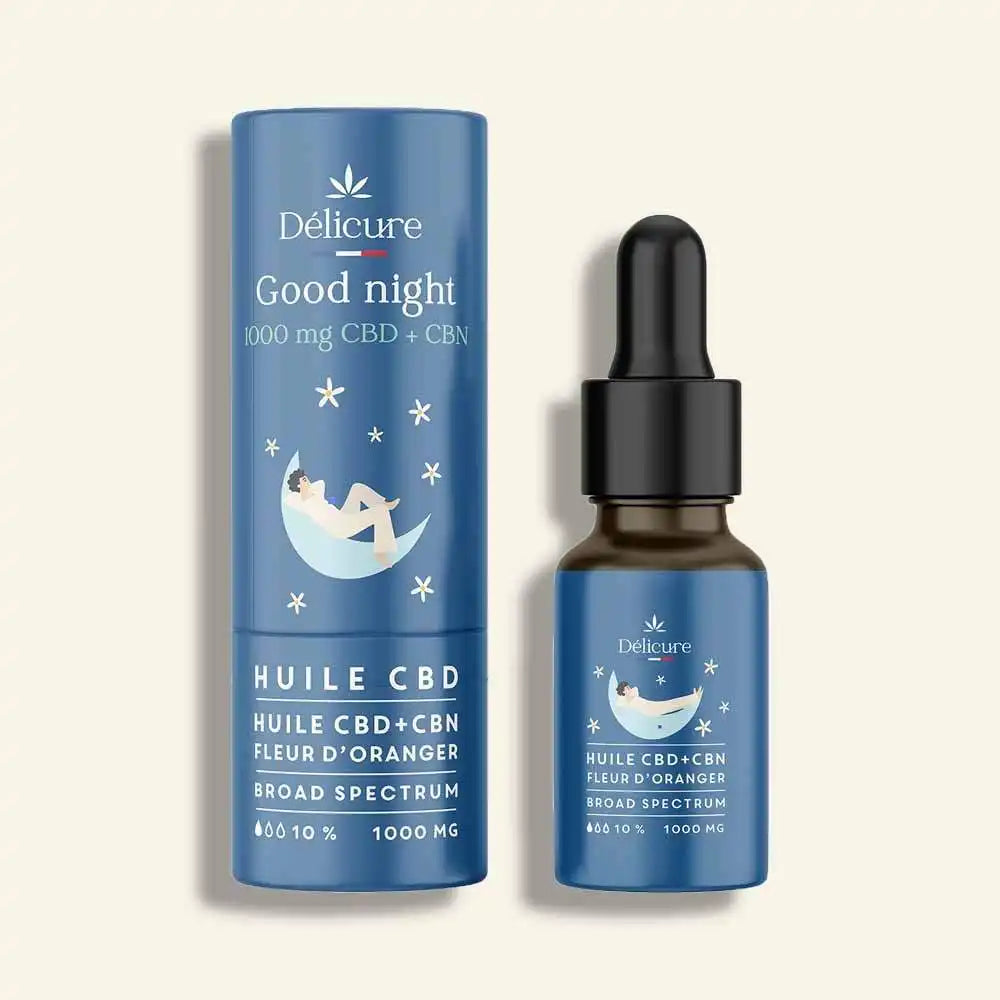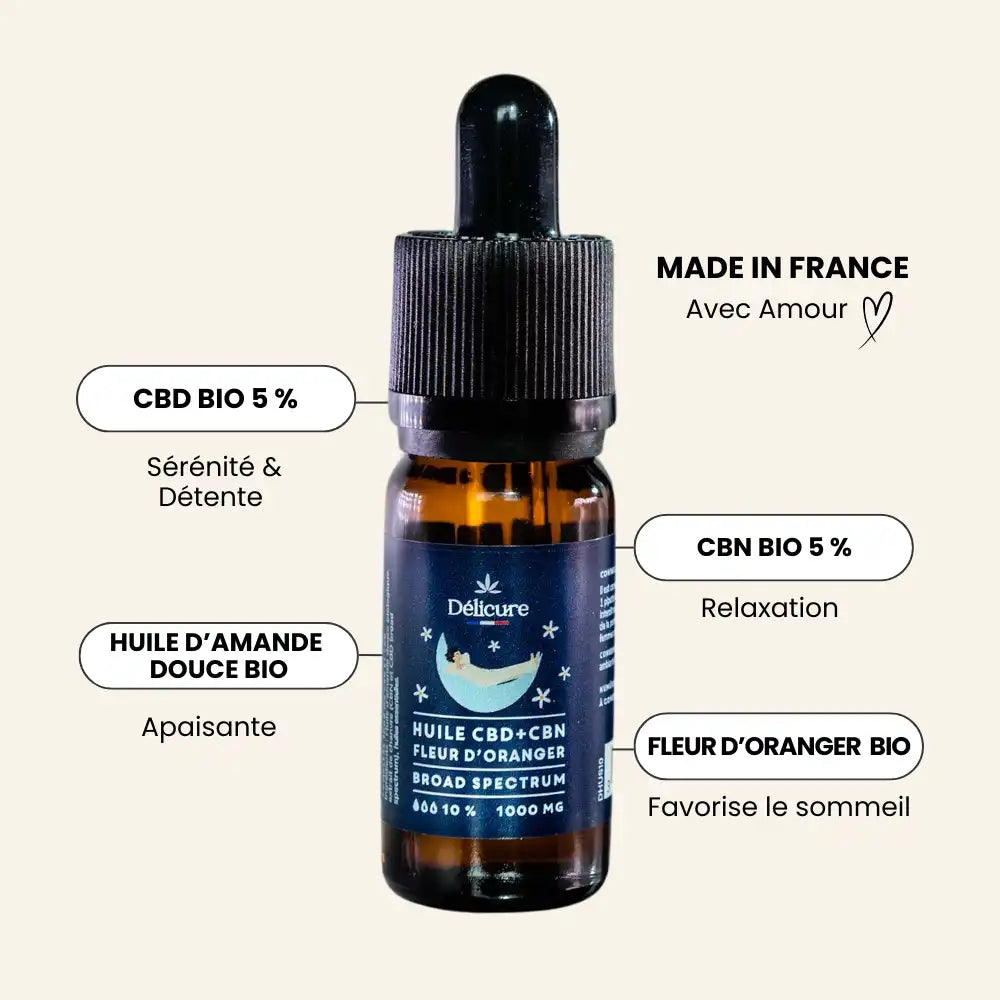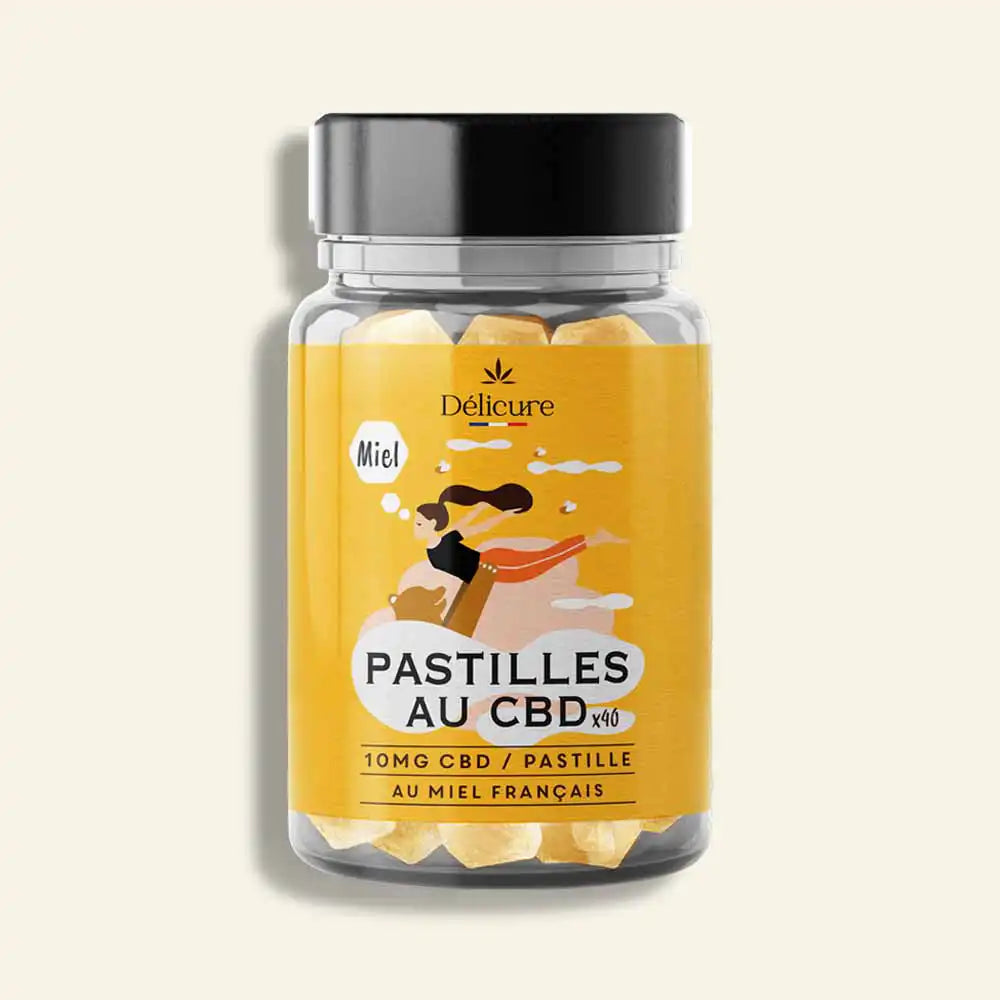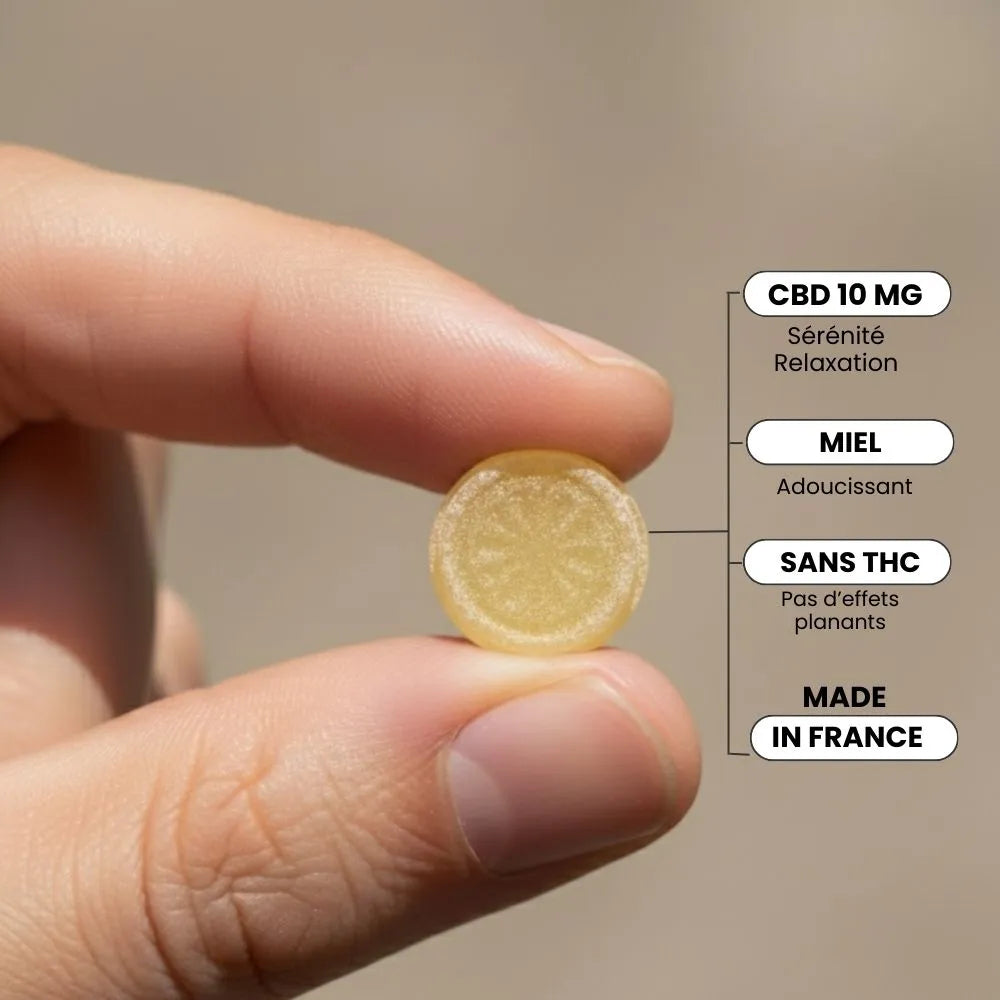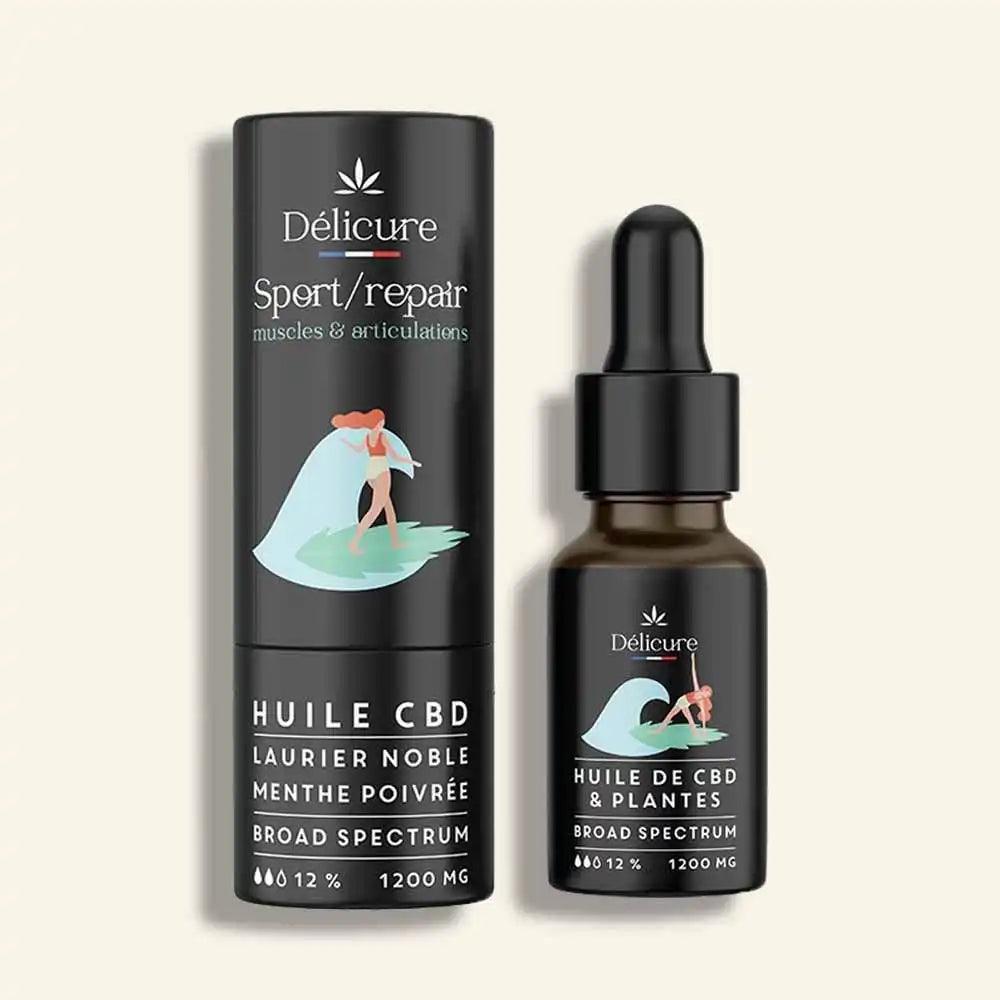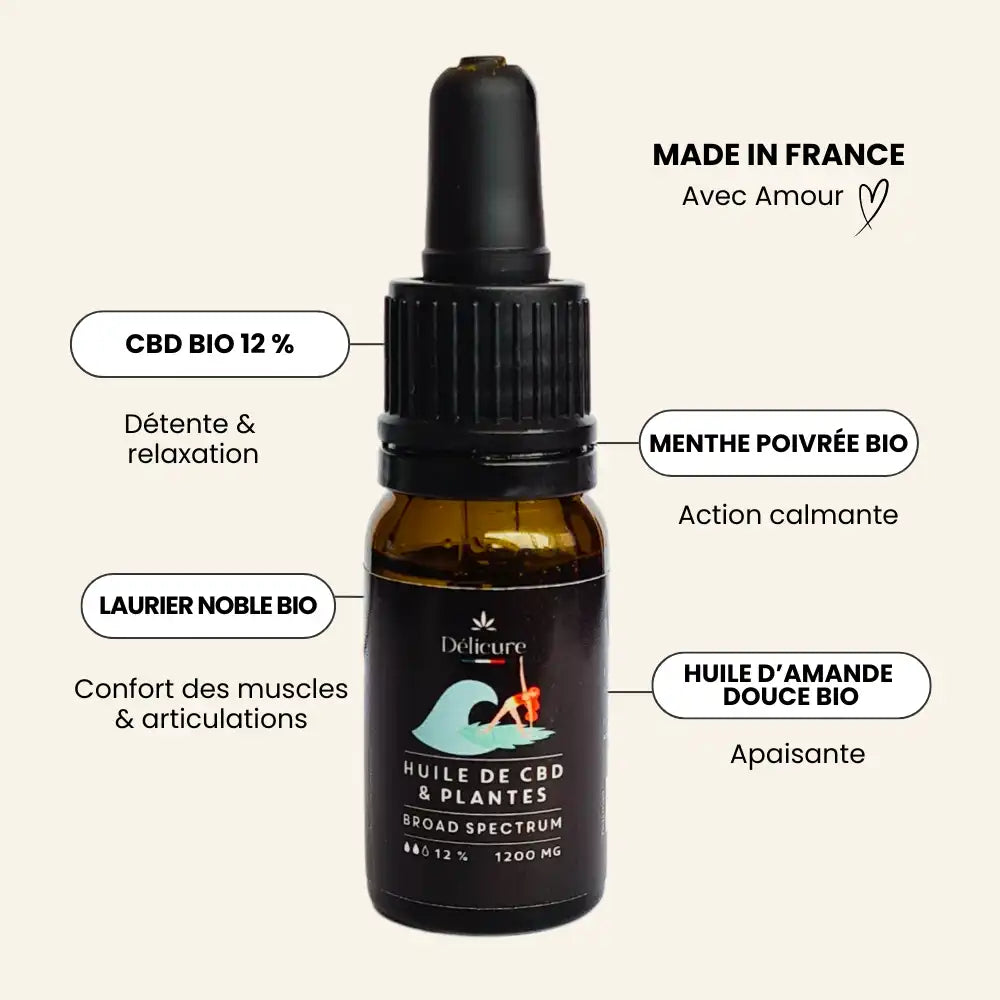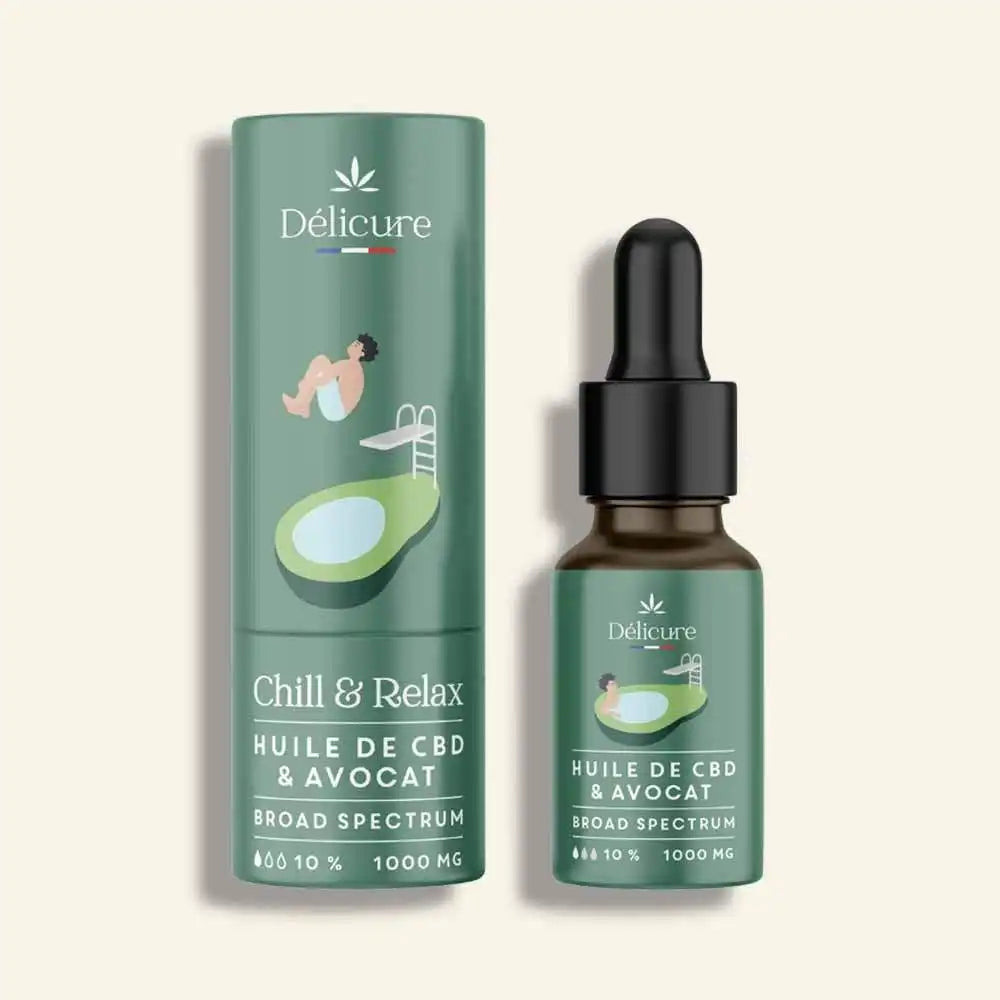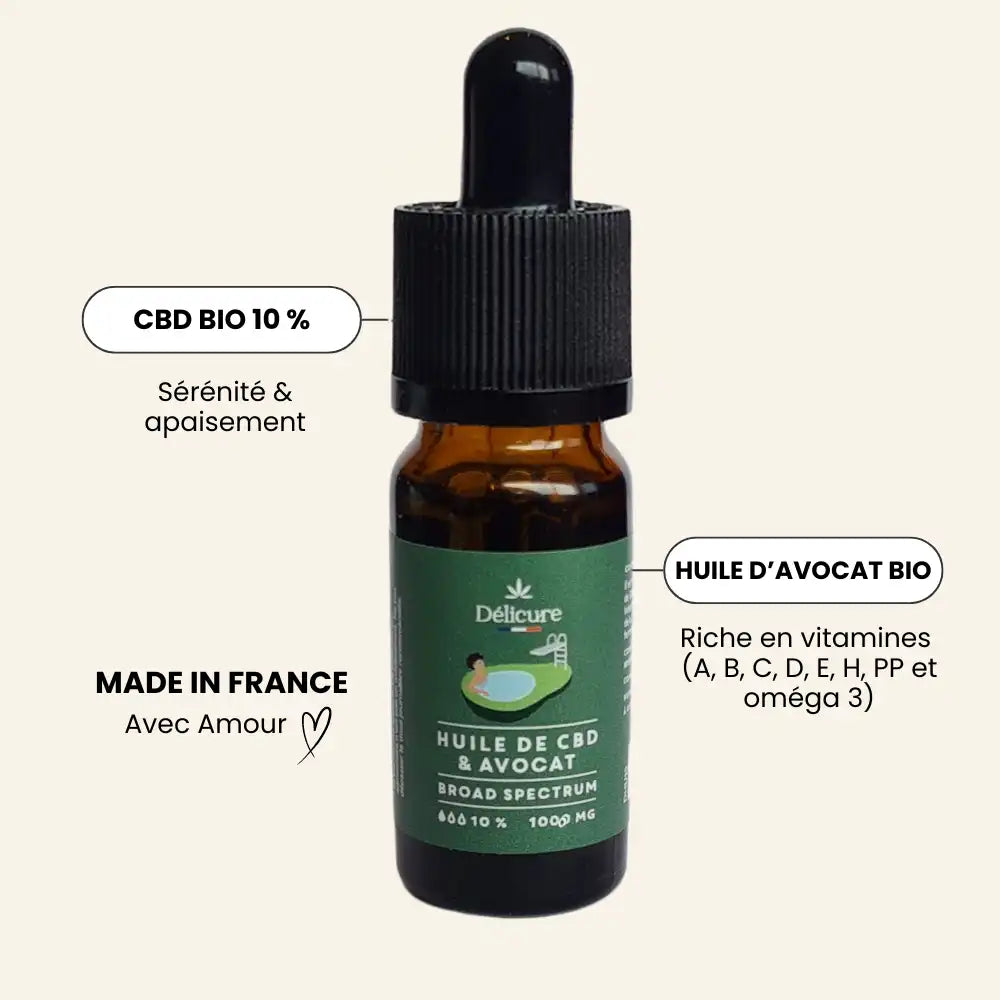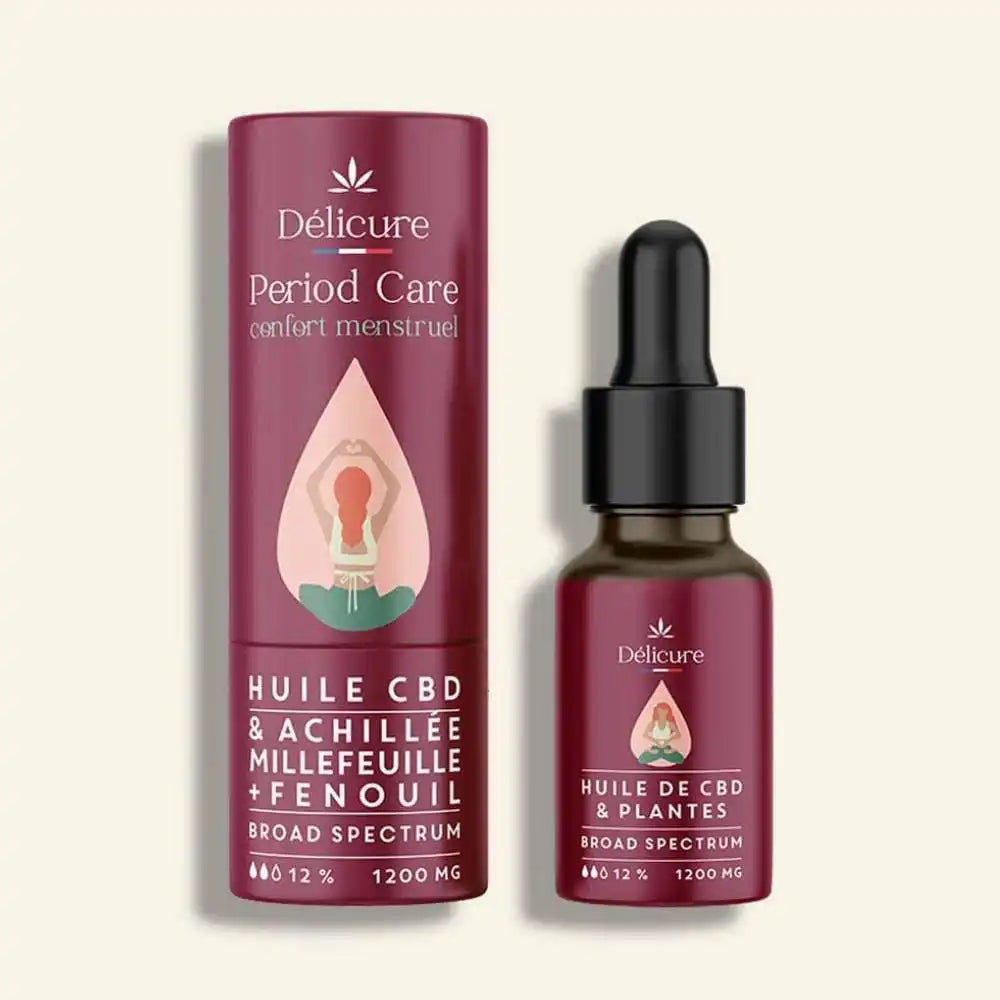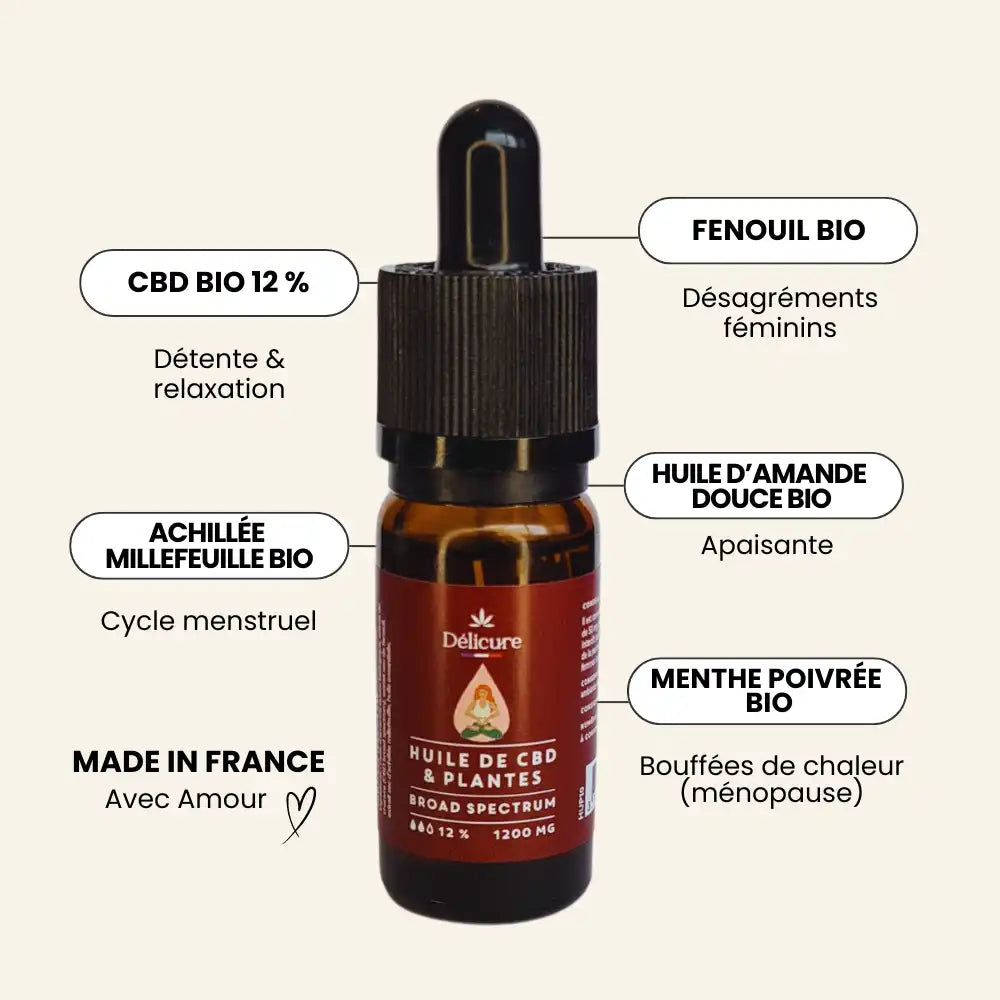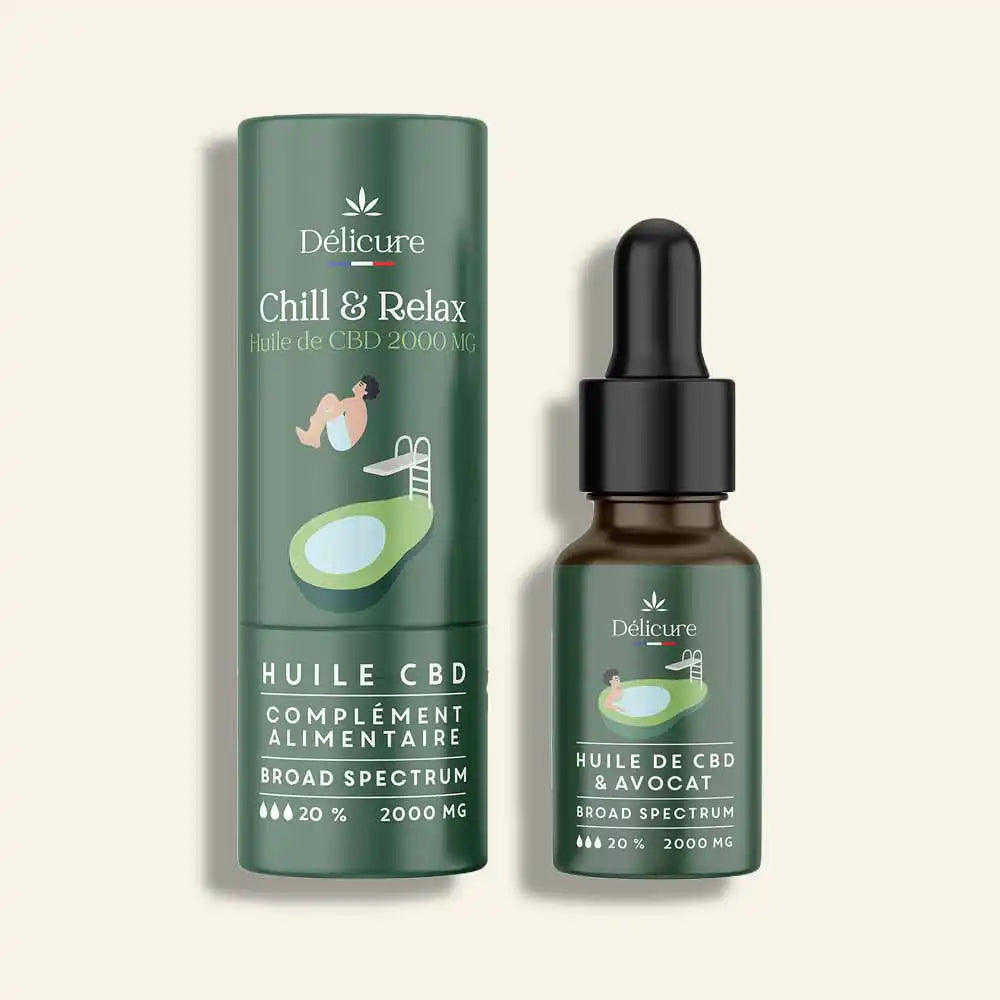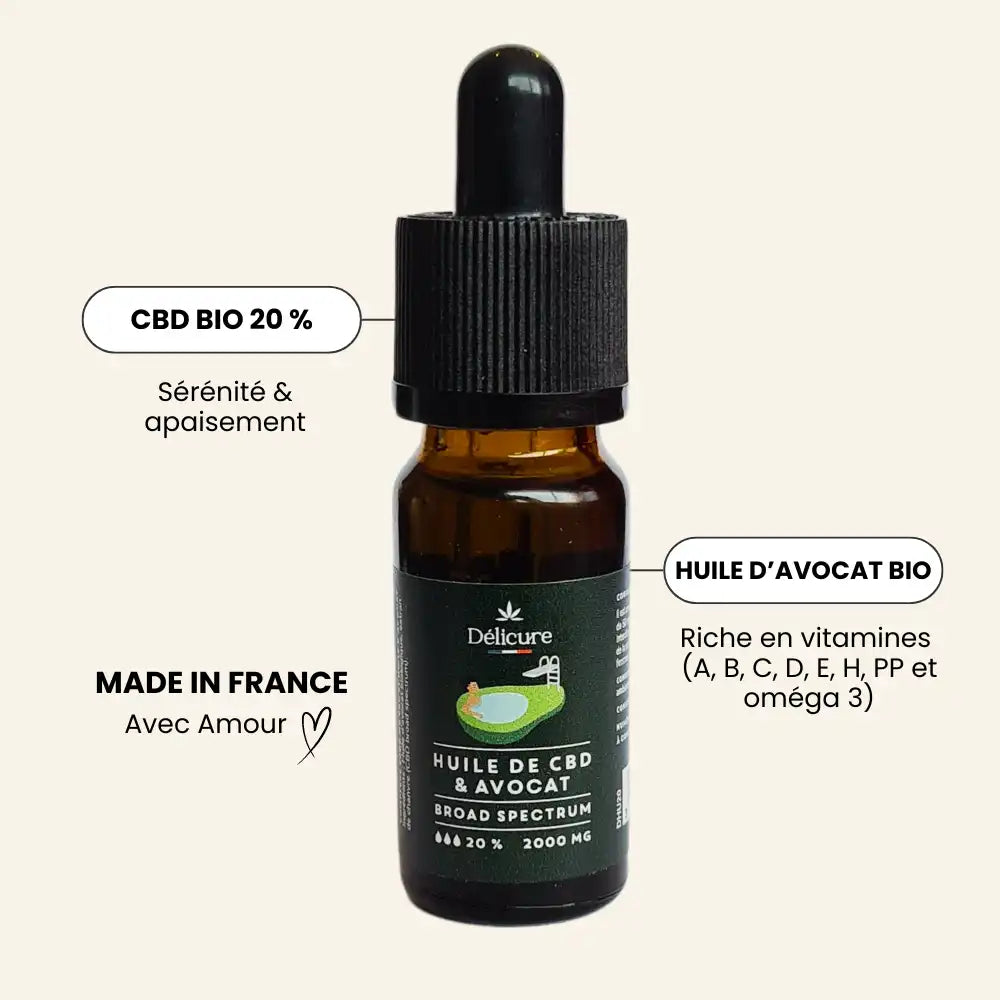The benefits of CBD
CBD is undoubtedly THE fashionable molecule, the market is developing at high speed, it is attributed to CBD multiple virtues, to believe that this molecule can act on all ailments. Let's try to take stock of the current state of knowledge and the real benefits of CBD.
What is CBD?
CBD (or cannabidiol) is a molecule from the hemp plant, also called cannabis. It is the second most studied cannabinoid after THC (tetrahydrocannabinol), the main active molecule of cannabis.
CBD and THC therefore belong to the same family of cannabinoids, but act differently on the human body.
THC is highly sought after by consumers for its psychotropic or “high” effects, while CBD is more appreciated for its therapeutic virtues. The latter in no way constitutes a recreational or harmful substance.
Not causing psychoactive effects, CBD is not considered a narcotic and is not dangerous for health. Its consumption is therefore legal in France. Indeed, cannabidiol benefits from the legislation applicable to hemp, the THC level of which remains below 0.3%.
By acting on the body's endocannabinoid system, CBD is a natural and effective remedy to promote mental and physical well-being. Indeed, it would help relieve sleep disorders, emotional stress and anxiety, inflammation and even physical discomfort.

1. Can relieve pain:
CBD tends to interact with a wide range of proteins in the central nervous system and the body, including components of the endocannabinoid system (ECS), such as CB1 receptors in the central nervous system and the brain, as well as cannabinoid receptors. CB2 found in the immune system and spleen.
THC binds strongly to these receptors, but CBD has the opposite effect. CBD inhibits the absorption of a natural cannabinoid molecule called anandamide, which regulates pain and correlates with feelings of happiness and well-being.
Research has found that CBD tends to target alpha-3 glycine receptors to reduce inflammation and suppress chronic pain, which is associated with dysfunctional glycine receptors, responsible for targeting pain treatment in spine.
The British Journal of Pharmacology published a 2014 study[1] which found that the analgesic properties of CBD are mediated through the TRPV1 receptor, thus concluding that CBD could be used as a pharmacological alternative in the treatment of chronic pain related to some diseases.
The Journal Neurotoxicology published another study [2] in its September 2015 issue which found that CBD also inhibits glutamate levels in the spinal cord and brain. Glutamate is associated with the transmission and increase of pain sensations.
A growing body of research seeks to demonstrate that CBD is an effective treatment method for a wide range of pain-related conditions.
Conclusion: even if numerous studies are underway, it is not currently authorized in France to say that CBD can reduce pain. Indeed, as CBD is considered a new product, it does not currently have any authorized health claims.

2 . Can reduce inflammation:
The Journal of Experimental Medicine published a study [3] that showed that CBD could significantly reduce chronic inflammation and pain in certain rats and mice. According to the investigation, non-psychoactive compounds in CBD could help relieve inflammation.
Therefore, CBD has an anti-inflammatory effect because when cannabinoids interact with the endocannabinoid system found in most organs of the body, inflammation is systematically reduced. Since inflammation is implicated in many diseases, the therapeutic potential of CBD may be significant.
Conclusion: Partially effective – Academic research proves that CBD can help reduce inflammation, however more studies will be needed to validate this fact.
Don't miss them!
OUR CBD PRODUCTS

3. Helps maintain good brain health:
Cannabinoids are neuroprotective, meaning they help maintain and regulate brain health. The effect is the result of several actions that cannabinoids have on the brain, such as improving the efficiency of mitochondria and eliminating damaged cells.
CBD and some of the antioxidant compounds found in cannabis also help reduce glutamate toxicity. Extra glutamate stimulates nerve cells [4] in the brain, causing them to fire, causing the cells to overstimulate, which could ultimately lead to cell damage or death.
Therefore, cannabinoids protect against damage to brain cells and keep the brain healthy and functioning properly. CBD also has an anti-inflammatory effect on the brain.
Answer: Unfortunately there is no proof. There is a lack of sufficient academic research to support that CBD helps maintain brain health.

4. May Relieve Anxiety and Depression:
Anxiety and depression affect more and more people every year.
In general, doctors advise people with chronic anxiety to avoid marijuana because THC can trigger paranoia or increase anxiety. However, CBD can help with both anxiety and depression if the THC level is limited to 0.03%.
According to a review published in 2015 in the journal Neurotherapeutics [5], CBD is a non-psychoactive compound that may help reduce anxiety and cope with certain anxiety-related behavioral disorders like generalized anxiety disorder. , post-traumatic stress disorder (PTSD), obsessive-compulsive disorder (OCD), social anxiety disorder, panic disorder, and substance use disorders.
However, there is no human research; these conclusions were drawn from clinical trials, experimental research and epidemiological studies.
CBD has also been studied to help reduce depression. CBD improves both serotonergic and glutamate cortical signaling, which people with depression lack. Studies focused on using CBD oil to treat depression [6] have shown promising results.
Conclusion: It’s true – Academic research tends to prove that CBD can help relieve anxiety and depression.

5. CBD promotes well-being
Text
Organic CBD Oil: The Complete Guide & Best Selection 2025
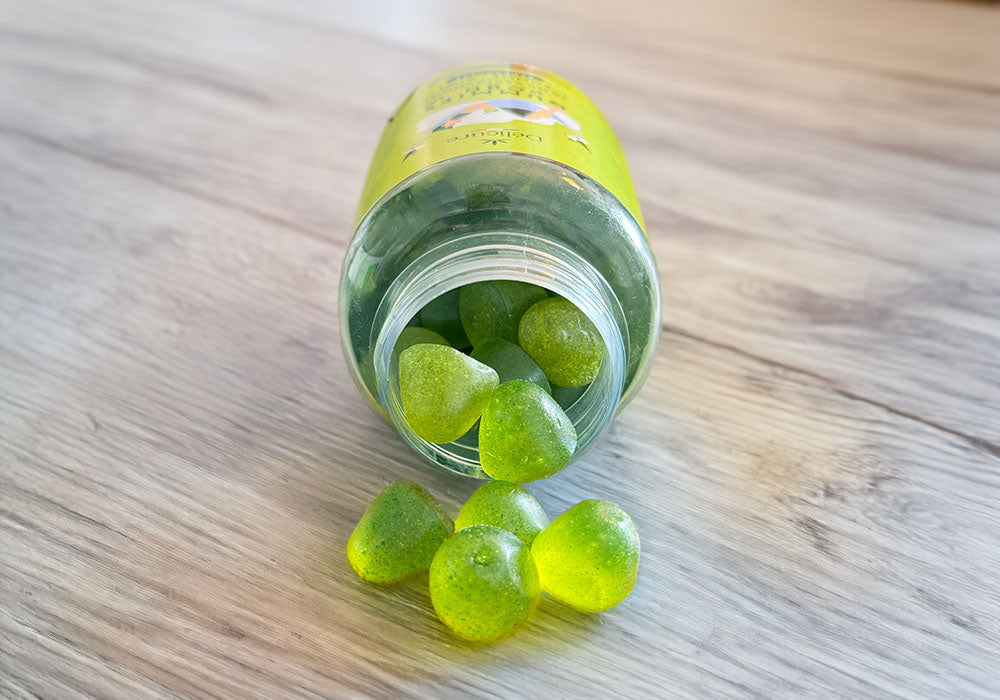
Délicure’s CBD products
Text

How to take CBD?
Text
We attribute many other virtues to this molecule but the research is not yet complete enough to confirm most of the benefits attributed to CBD . We are only at the beginning of research on this molecule, the only thing we can say with certainty is that this precious molecule appears promising in many fields of action.
If you want to try the benefits of CBD, Délicure offers a wide range of CBD products: CBD gummies , our organic CBD oils as well as our CBD candies can also be valuable aids for stress management.
Be careful not to confuse CBD and THC , the latter is considered narcotic and therefore illegal.
sources
1, 21 Barbara Costa, Gabriella Giagnoni, Chiara Franke, Anna Elisa Trovato, and Mariapia Colleoni (2004) Vanilloid TRPV1 receptor mediates the antihyperalgesic effect of the non-psychoactive
- Pedro H. Gobira, Luciano R. Vilela, Bruno DC Gonçalves, Rebeca P. M. Santos, Antonio C. de Oliveira, Luciene B. Vieira, Daniele C. Aguiar, José A. Crippa, Fabricio A. Moreira (2015) Cannabidiol, a Cannabis sativa constituent , inhibits cocaine-induced seizures in mice: Possible role of the mTOR pathway and reduction in glutamate release. ScienceDirect [online]12. DC Hammell LP Zhang F. Ma SM Abshire SL McIlwrath AL Stinchcomb KN Westlund. (2015). Transdermal cannabidiol reduces inflammation and pain‐related behaviors in a rat model of arthritis. [online] British Journal of Pharmacology
- Xiong, W., Cui, T., Cheng, K., Yang, F., Chen, S.-R., Willenbring, D., Guan, Y., Pan, H.-L., Ren, K. , Xu, Y. and Zhang, L. (2012). Cannabinoids suppress inflammatory and neuropathic pain by targeting α3 glycine receptors. The Journal of Experimental Medicine, [online] 209(6), pp.1121–1134.
- Conscious Lifestyle Magazine. (2017). The Keys to Brain Health: 10 Supplements and Habits That Supercharge Your Brain.
- Ibeas Bih, C., Chen, T., Nunn, AVW, Bazelot, M., Dallas, M. and Whalley, BJ (2015). Molecular Targets of Cannabidiol in Neurological Disorders. Neurotherapeutics, 12(4), pp.699–730.
6. Zanelati, T., Biojone, C., Moreira, F., Guimarães, F., and Joca, S. (2009). Antidepressant-like effects of cannabidiol in mice: possible involvement of 5-HT1A receptors. British Journal of Pharmacology, 159(1), pp.122–128.





